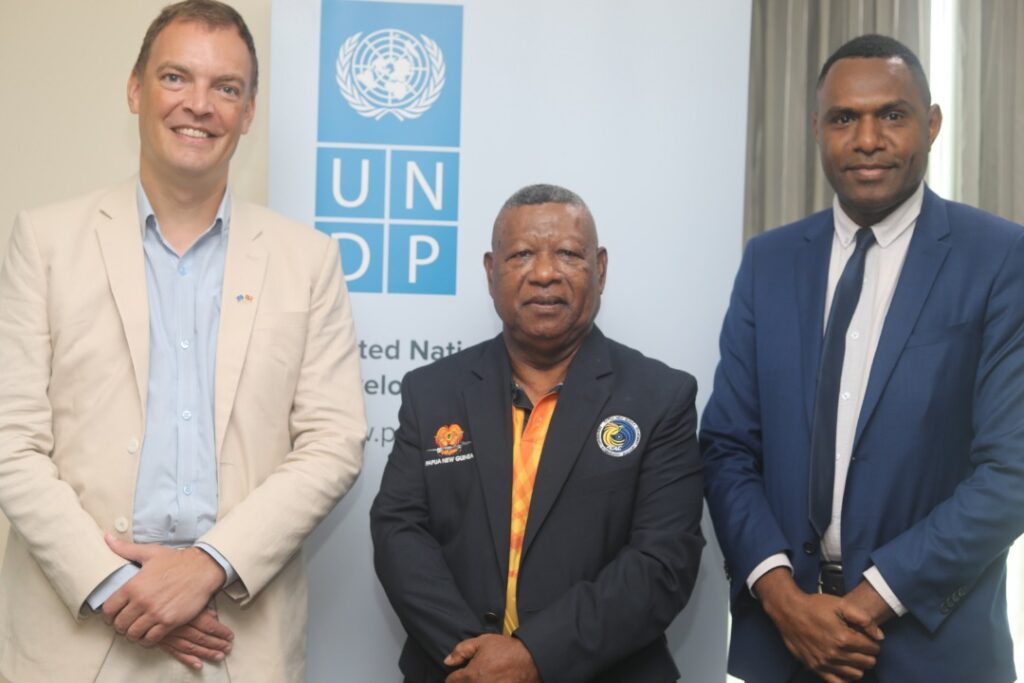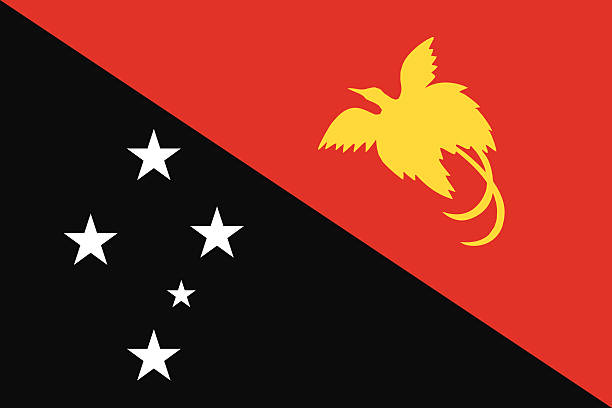Wednesday 28th September, 2022

Hans Lambrecht, PhD First Secretary- Head of Cooperation, Delegation of the EU to PNG, Mr Thomas Eluh Chairman, Interim ICCAC and Officer in Charge of the Dept of ICT Mr Russel Woruba
The Universal access to information means that everyone has the right to seek, receive and disseminate public information.
This was the message delivered today by the Officer in Charge of the Department of Information and Communications Technology Mr Russel Woruba on behalf of the Minister for ICT Hon. Timothy Masiu during the roundtable on “Establishing and Implementing the Effective Right to Information Regime in partnership with the United Nations Development Programme on the occasion of Access to Information Day in Port Moresby today.
Papua New Guinea joins the global celebration of the Information Day for Universal Access to Information today the 28th of September 2022.
“It is Sustainable Development Goal 16.10 where access to information is a prerequisite for sustainable development and for claiming human rights”, stated Mr Woruba.
“In Papua New Guinea, Right to Information is guaranteed by the Constitution since 1975. Article 51 of Papua New Guinea’s Constitution does guarantee the right to information for every citizen”.
“Since Papua New Guinea’s independence, many important developments have taken place to ensure the right to access public information. Amongst other rights, such as the right to live in a just society governed by the rule of law, the right to live in a corrupt free society and the right to hold the government to account, these rights encompass knowing how citizen’s personal data is collected and stored, knowing how algorithms are used on systems and used for or against the population”.
“PNG has joined the Open Government Partnership (OGP) in October 2015, and established a National OGP implementation mechanism by creating a Focal Point Secretariat within the Department of National Planning and Monitoring and a National OGP Steering Committee comprised of government departments and civil society organizations (CSOs), Mr Woruba stated.
He added that Open Government Partnership (OGP) initiative has been the platform of the Government of Papua New Guinea through which the efforts to promote transparency, accountability, responsiveness to citizen’s needs were promoted. OGP brings together government, civil society and private sector as champions of reforms that contribute to the greater inclusiveness of citizens’ participation in decision making. This is inherent to upholding citizen-centric government ideals.
“The OGP Steering Committee first OGP National Action Plan for 2018 – 2020 has expired. The second PNG’s OGP National Action Plan (2022 – 2024) was delivered in March 2022. The new OGP National Action Plan has 6 Cluster Commitments and Freedom of Information which had been also included in the first OGP National Plan is amongst them. The new Cluster Commitments in the current National Action Plan are Government Integrity and Open Data”.
“The Cluster Commitment related to the Freedom of Information strengthens the mechanism for citizens to access information as provided under Section 51 of the National Constitution,” said Mr Woruba.
“The Department of Information and Communications Technology has developed a comprehensive draft National Right to Information Policy in partnership with UNDP within the PNG Anti-Corruption Project. “
Mr Woruba further stated that the public consultations will be organized in the next few months to finalize the National Right to Information Policy which will serve as a foundation for drafting the freedom of information legislative instructions in the upcoming months.
“The ICT Department has also drafted a comprehensive Digital Government Plan (2022 – 2027), within the recently enacted Digital Government Act 2022. One of the commitments under this plan in accordance with the OGP and United Nations Convention Against Corruption is to establish an e-Government Portal and digital platform to promote access to public documents, laws, actions, and all documentation and information”.
He also stated that the Freedom of Information legislation will be developed to enable access to information along with establishment of the E-Government Portal, to promote accountable and transparent Government, and to ensure that every PNG citizen will have guaranteed the right to access to public information, as a fundamental human right and as a foundation for the open, democratic Government, in accordance with the PNG National Constitution.
“I am pleased that with the establishment of ICAC, these efforts will be consolidated and strengthened. I am pleased to further announce that the department’s further deliberations with ICAC Chairman Mr Thomas Eluh and his team on the use of technology, which is the mandate of the Department of ICT, to enable interoperability of systems to enable various classification of data and govern interoperability in a secure, efficient and scalable manner. Data or information that is classified as open, should then be readily available for decision making by respective mandated entities and citizens”.
I wish us all a fruitful discussion as we share and collaborate on this year’s theme, “Artificial Intelligence, e-governance and access to information”, a very appropriate and timely one as it relates to our government’s current digital transformation endeavours. We very much appreciate UNESCO’s auspicious intervention as always.
He thanked the UNDP for their continued support to the Government of Papua New Guinea in the fight against corruption. The official ceremony of the International Day for Universal Access to Information Day is celebrated at Uzbekistan today.

